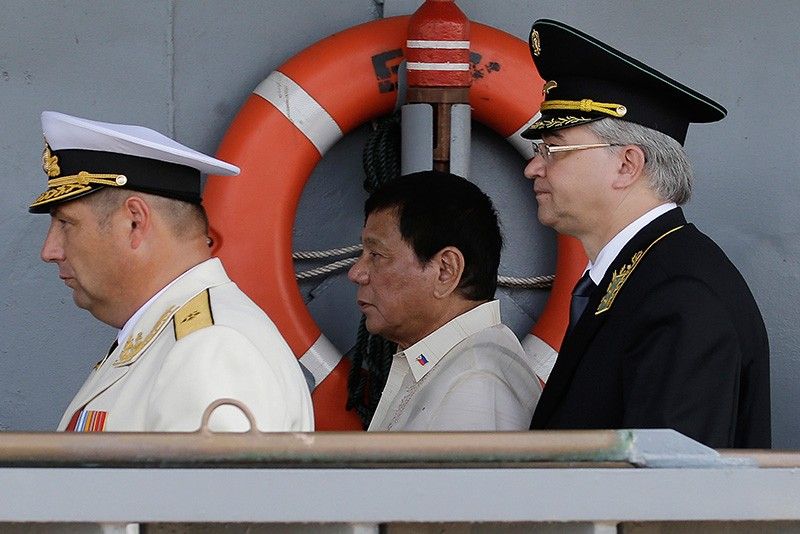Talking about 'allies': The Philippines' new partners

President Rodrigo Duterte is set to cement his policy of broadening the Philippines' international cooperation, especially with non-traditional and new partners. Earlier this year, for example, Duterte welcomed visiting Russian warships in Manila in what was reportedly the first formal contact between the Russian and Philippine navies.
By diversifying the Philippines' partners, the administration is maintaining external lines of support while it pursues domestic policies that are unpopular with some foreign governments. As always, however, context is important in understanding the reach and potential of any partnerships.
Connecting approach with outcomes
For the Philippines, the administration's cooperative tone is a step forward from the president's previous remarks against the international community. While Duterte's outbursts still make the news, beneath them the administration has worked to channel the president's dissatisfactions into a constructive approach. Although a warm atmosphere isn't everything, its importance in translating a government's objectives into reality cannot be discounted.
At the same time, the growing positivity in the administration's approach is not always matched with clarity in its purpose. On the West Philippine Sea, for example, there is no definitive answer to how the president will highlight or even 'set aside' the arbitral tribunal's ruling on the case against China. In the bigger picture, the administration could still outline its vision for stability in the South China Sea or for resolving the multi-country disputes in the long run.
Questions on the Philippines' next steps are likely to multiply throughout 2017, and speculation on the administration's intentions alongside them. As the Philippines is the chair of ASEAN, the body's many activities will help remind Filipinos of these issues and lead some to ask how the country will use the opportunity, as host, to maximize the experience.
Partners are not easily interchangeable
The government's vision and specific objectives will guide us in understanding the Philippines' new partnerships and the role that these might play in helping the country to achieve its goals. Of course, different partnerships usually contribute in different domains (e.g. economics or security) to different objectives (e.g. infrastructure loans or counter-terror intelligence).
One example is the government's burgeoning friendship with Russia. Russia's offer to assist in the sale of small arms is relevant to the government's goals of equipping the Philippine Army in its efforts to crack down on Filipino or transnational armed groups operating in the country. This cooperation may be mutually beneficial: Russia makes sales and the Armed Forces of the Philippines gets a ready source of weapons.
A second example is the Philippines' cooperation with Malaysia and Indonesia in patrolling the Sulu-Sulawesi corridor. The three countries are working to coordinate their air and sea patrols, with the goal of reducing cross-border illicit activity. All three countries could benefit from fewer threats to their citizens.
Because of the variety of the country's interests, even the most capable of foreign countries are not immediately interchangeable in the support that they provide to the Filipino people. For the same reason, we can't say that any of these countries are now the Philippines' protectors, nor can we assume that partnerships in one domain will translate into other areas. Russia's offer of arms does not mean that Russia is interested in or able to provide support toward the peace process in Mindanao. Indonesia, Malaysia, and the Philippines have differences over the South China Sea.
Rather than playing fast and loose with labels like "ally," it makes more sense to talk about how the countries involved either have mutual obligations, shared goals or individually benefit from cooperation. Context allows us to avoid false equivalencies and more fully appreciate the work that goes into fostering cooperation.
Angelica Mangahas is deputy executive director of the Stratbase Albert Del Rosario Institute (ADRi) and a lecturer with the International Studies department of De La Salle University in Manila. She completed her master’s degree in Security Studies at Georgetown University. Her writing and advocacy experience spans multiple international humanitarian and diplomatic organizations. Her current research focuses on Philippine and regional security concerns.
- Latest






























